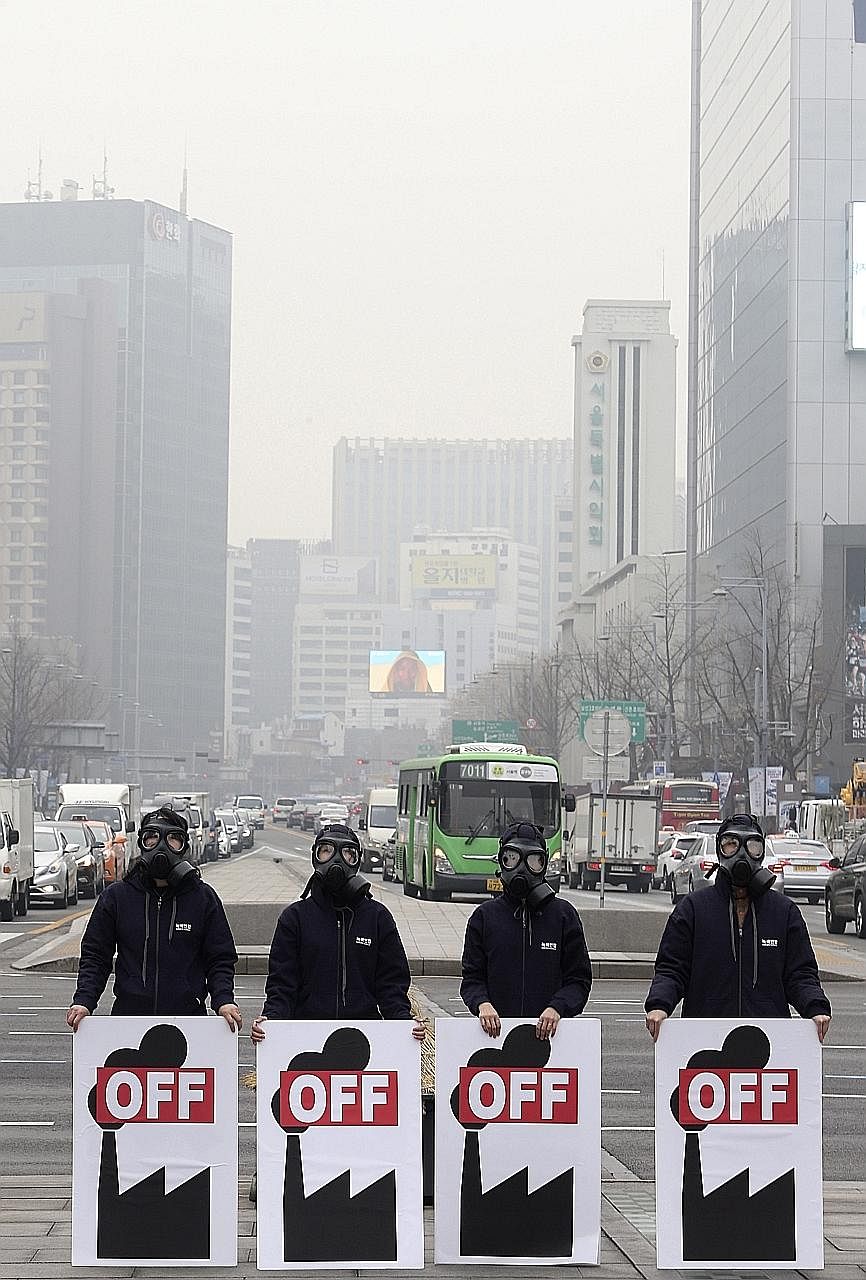SEOUL • South Koreans are getting more angry and frustrated as hazardous ultra-fine particulate pollution grips large parts of the country.
Yesterday, emergency measures to reduce ultra-fine PM2.5 dust - particles smaller than 2.5 micrometers in diameter - were enforced for the sixth consecutive day in Seoul and surrounding areas.
President Moon Jae-in has also ordered his government to secure extra funding for dust-busting measures like artificial rain, and to discuss solutions with neighbouring China.
Checking the level of ultra-fine particles for the day, wearing a mask when going outside and avoiding outdoor activities have become part of the daily routine for many people.
"I feel like my life expectancy is declining every day," said Ms Jin Cho, a banker in her 40s who was on her way back to work with a colleague after lunch near City Hall.
"My eyes and my throat are sore. I bought many masks and I don't even make dinner plans these days due to the fine dust," she said.
"I am angry, annoyed and worried whether I am outdoors or indoors because of the pollution."

A police officer based in Yangju, Gyeonggi province, who wished to remain anonymous, said: "I am so depressed these days.
"When levels of fine dust are extremely high like in recent days, I am worried about my health. But it is my job to spend six to eight hours outside."
The average hourly ultra-fine dust level was measured at 180 micrograms per cu m in Seoul, 176 in Gyeonggi province, 155 in Incheon and 147 in Gangwon province as of 1pm yesterday.
Seoul's municipal environment agency blamed the pollution on China's firework displays last month and stagnant air over the Korean Peninsula.
The agency said more than 70 per cent of ultra-fine pollutants over South Korea likely originated in China. It traced diffusion of chemical particulates from China to South Korea from Feb 17 to 23 and from Feb 27 to March 5.
"Weather conditions... delayed diffusion of pollutants stemming within the country and from abroad," Mr Shin Yong-seung of the Research Institute of Public Health and Environment said yesterday.
Fourteen cities have imposed emergency measures, under which local governments can ban old diesel cars from streets, restrict operations of coal power plants, cut class hours, and ask businesses to let employees work from home.
But many question the effectiveness of government actions.
Foreign visitors appeared to be the most vulnerable, with many not wearing masks. "I received a fine dust alert in a text message, but that was all in Korean," said tourist Fung Tze Shan, who was near the Gwanghwamun Square.
"I am not exactly worried because we don't stay here for long. But it is bad for sightseeing because the city looks gloomy. It doesn't look nice in pictures," said the 32-year-old visitor from Singapore.
THE KOREA HERALD/ASIA NEWS NETWORK
